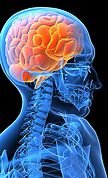The 'brain fitness' programme market is booming, but does it work?

Chester Santos has been training his brain for seven years. At 32, he's not worried about losing his memory. He's taking advantage of a growing market in "brain fitness" spurred by ageing baby boomers.
Teenagers cramming for tests and people worried about "senior moments" can now turn to an explosion of brain-assisting video games such as Nintendo's Brain Age, puzzles that are said to ward off dementia such as Sudoku and crosswords, as well as online tips that claim to train the brain.
Santos, the 2008 United States Memory Championship winner, can memorise a shuffled deck of cards in three minutes and learn 100 random words and 100 new names and faces in 15.
"People are capable of doing so much more with their brains than they think is possible," says Santos, who recently quit his software job to teach his memory techniques full-fime.
The brain fitness boom might seem counter-intuitive in an age when technology has eased memory stress: cell phones store numbers, GPS systems give directions, websites store passwords and e-mail
programmes automatically recall used addresses.
Many boomers in the United States have watched their parents struggle with Alzheimers, and an estimated 10 million of them are now expected to develop the disease, according to a recent report from the Alzheimer's Association.
"People are worried," says Dr John Hart Jr, medical science director of the Centre for BrainHealth at the University of Texas at Dallas. "You have a large group of the population getting to the age where they are sort of vulnerable to degenerative neurological diseases that seem to be prevalent."
Hart says tbere is "reasonable evidence" that challenging your brain by learning new things can stave off the cognitive decline that comes with ageing. But brain fitness programmes differ from traditional learning by focusing on drills for specific cognitive abilities, such as concentration and retaining information.
Hart says there is no one brain "exercise" that is guaranteed to work for everyone.
That hasn't stopped brain fitness pmgrammes from making claims. Posit Science says its computer- based programmes will "help you think faster, focus better and remember more."
While some include a disclaimer, such as Cogmed Working Memory Training for kids and adults with attention deficits, many of the games do not.
Some users say they feel the benefits. Sarah Schultz, 67, of Knoxville, Maryland, says she can think faster because of Lumosity, an online brain fitness programme that claims to "improve cognitive performance and maximise brain health through fun and engaging games." She has been doing the programme once a day for the past four months.
"i feel more alert," she says. "It helps me to remember things, lists, names, faces. It really helps with recall."
Even teenagers cramming for tests are turning to brain exercises. Raemon Matthews, a history teacher in New York City, uses some of the techniques in his curriculum and says he's seen a difference in his students' performance.
Tony Dortino, who founded the USA Memory Championships more than a decade ago and teaches memory techniques, says people have the misperception that the drills are "some awful thing, where you have to sit there and stuff information into your head."
"It's not a matter of stuffing it into their heads," he says. "It's a matter of helping them organise it in a way that their brains will be able to retain."
For now, the brain fitness market is poised to grow. Hart's goals are more modest: he suggests people find something that is mentally challenging and fun and do it on a regular basis.
"I am hoping that in the future, you will be able to go a health care provider or other expert who will be able to give folks a brain physical" and prescribe the proper exercises, he says.

